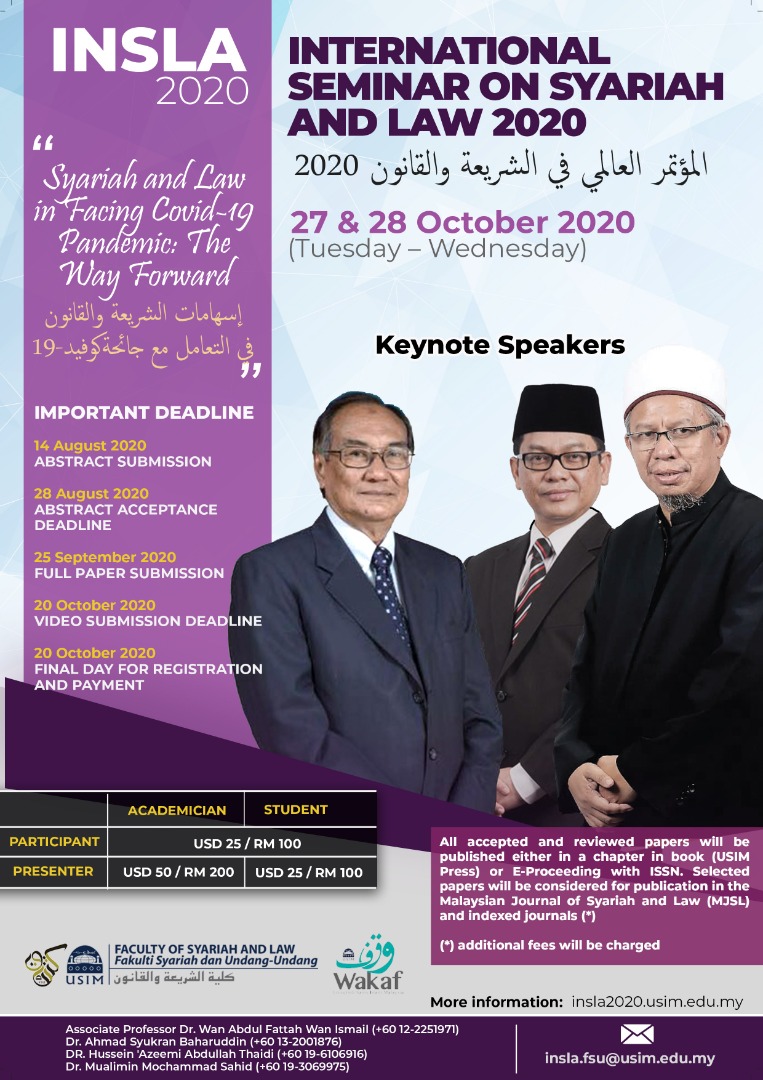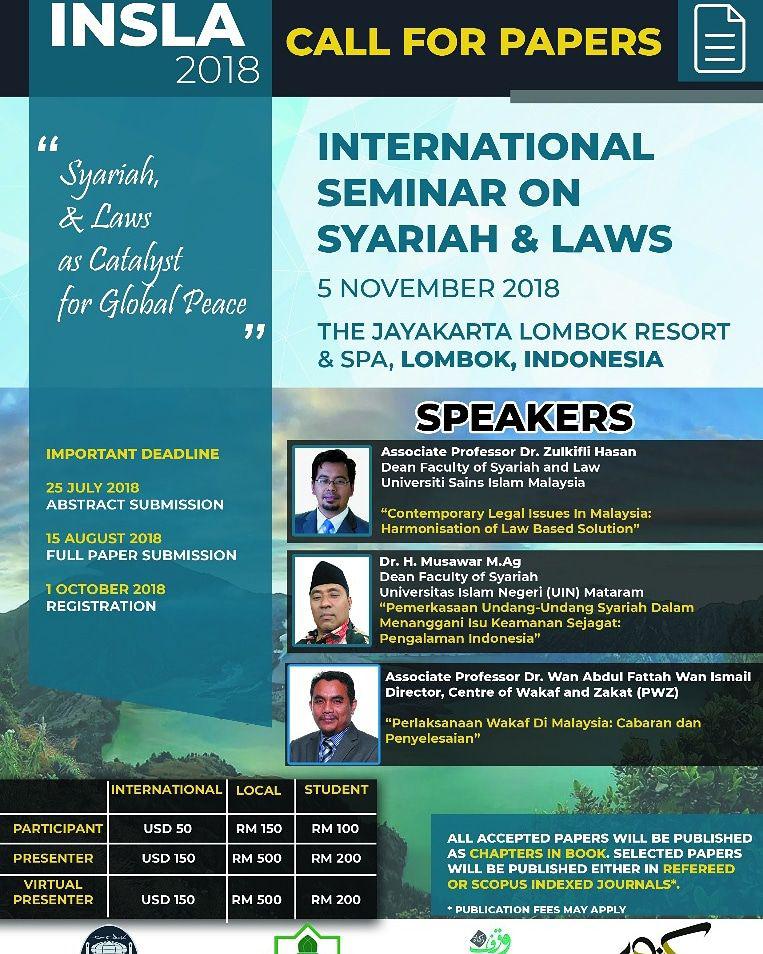القواعد الفقهيّة الحاكمة لوباء كورونا المستجد (كوفيد-19) في نوازل الطّهارة والصّلاة
The Islamic Legal Maxims in Governing COVID-19: Emerging Issues in Prayers and Purity
Keywords:
القاعدة الفقهيّة، وباء كورونا المستجدّ، الصّلاة، الطّهارة، رفع الحرج، المصلحة، الضّرورة.Abstract
Muslims are today faced (COVID-19) which has baffled the minds. In the absence of a vaccine, infection control measures remain the most effective prevention against the virus. This research examines the fiqh principles governing COVID-19 and their application in contemporary issues pertaining to salah and tahara. In achieving this objective, the research relies on inductive and analytical methodologies to collect the principles relating to COVID-19 and then analyze and apply them. The research finds thus: Among the fiqh principles governing COVID-19 as regards purity and prayers are: that difficulty brings about facilitation; harm should be removed; necessities make the forbidden lawful; the authority of the leader is subject to public interest. These principles were applied in the following: permissibility of dry ablution (tayammum) in the case of a person whose movement is restricted as a result of the COVID-19 pandemic; permissibility of suspending congregational and Jum’at prayers in the mosques; permissibility of combining two prayers by COVID-19 patients and their attending doctors in the face of hardship; permissibility of skipping congregational and Friday prayers by COVID-19 patients and their doctors; covering the mouth and the nose during prayers; observing social distancing during congregational prayers; impossibility of washing the dead due to fear of infection and prayer on the body of the victims of the virus. One of the major principles of sharia policy in both public and private guardianship is that (the exercise of authority by the leader on the public is subject to maslaha (public interest). The application of this principle is clear in the suspension of congregational and juma’at, ‘Eid prayers and allowing only the call for prayer. It was also applied in imposing quarantine.
مِن النّوازل الّتي واجهت المسلمين اليوم: وباء كورونا المستجد، الّذي حيّر العقول، وأعجز الأفهام. وحيث إنّ الطّبّ لم يتوصّل إلى لقاح متاح لمنع العدوى منه، لذا تبقى تدابير مكافحة العدوى هي الدّعامة الأساسيّة للوقاية منه. هدف هذا البحث إلى بيان أهمّ القواعد الفقهيّة الحاكمة أو المنظّمة لوباء كورونا المستجدّ، وتفعيلها وتطبيقها في نوازل الطّهارة والصّلاة. ولتحقيق هذين الهدفين اتّبع الباحث المنهج الاستقرائيّ والتّحليليّ، اللّذين يتمثّلان في استقراء وتتبّع القواعد الفقهيّة المتعلّقة بوباء كورونا من المصادر المعتمدة، ثمّ تحليلها وتفعيلها في الفتاوى الفقهيّة المتعلّقة بالطّهارة والصّلاة. وقد توصّل الباحث من هذه الدّراسة إلى جملة من النّتائج، أهمّها ما يأتي: من أهمّ القواعد الفقهيّة الحاكمة لوباء كورونا المستجدّ في نوازل الطّهارة والصّلاة: المشقّة تجلب التّيسير، والضّرر يزال، والضّرورات تبيح المحظورات، وتصرّف الإمام على الرّعيّة منوط بالمصلحة. تمّ تفعيل هذه القواعد وتطبيقها في الأحكام الآتية: جواز التّيمّم لمن قيّده وباء كورونا عن الحركة، ولم يستطع استعمال الماء، أو لم يجد من يناوله إيّاه، وفي جواز تعليق إقامة صلاة الجمعة والجماعة في المساجد، وفي جواز الجمع بين الصّلاتين للمصابين بالوباء وللأطبّاء عند لحوق المشقّة الشّديدة بهم. وفي منع المصابين بوباء كورونا من أداء صلاة الجمعة والجماعة في المساجد، وفي جواز تغطية الفم والأنف باللّثام أو ما تعارف عليه النّاس اليوم بالكمّامة، والتّباعد بين المصلّين أثناء الصّلاة في المساجد. وفي تعذّر غسل الميّت بوباء كورونا خشية العدوى، وفي الصّلاة عليه صلاة الغائب أو دفنه بدون طهارة. من أعظم قواعد السّياسة الشّرعيّة والولايات العامّة والخاصّة في الإسلام: قاعدة (تصرّف الإمام على الرّعيّة منوط بالمصلحة)، وقد برز تفعيل هذه القاعدة في تعليق صلاة الجماعة وصلاة الجمعة والعيدين في المساجد والمصلّيات، وفي الاقتصار على رفع شعيرة الأذان، وكذلك في الحجر الصّحّي.
Downloads
Published
Versions
- 2020-11-07 (3)
- 2020-11-07 (2)
- 2020-11-05 (1)







